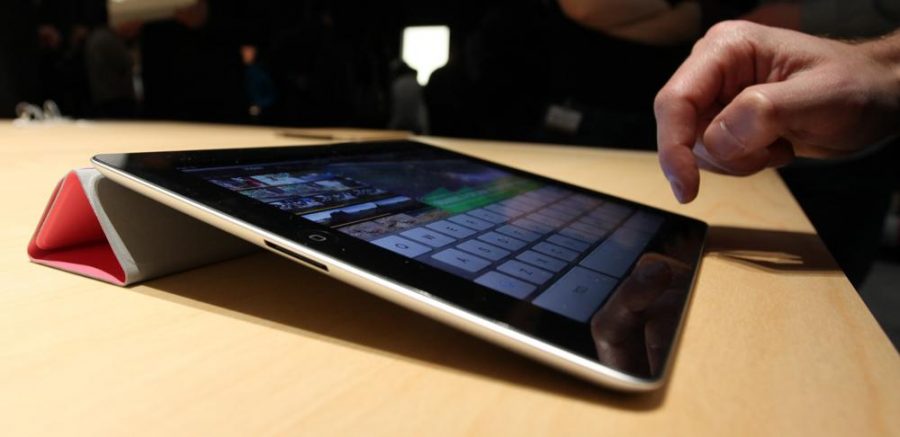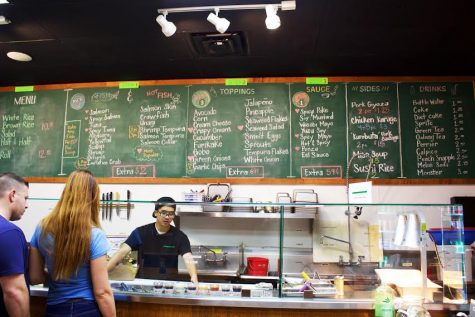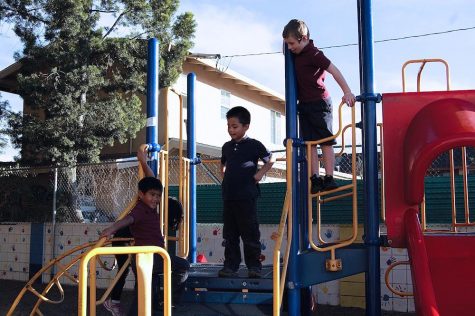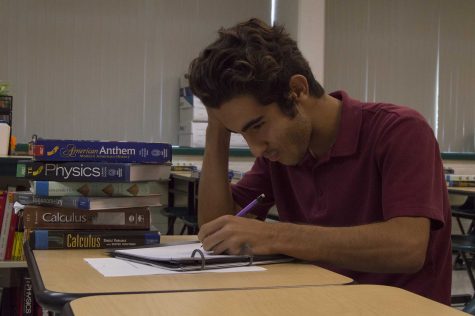EDITORIAL: Shiny Apple iPads over teachers
To provide a modern technological approach to teaching, the Los Angeles Unified School District has opted to fund a nearly $1-billion program aimed at purchasing iPads for its over 600,000 students. Despite this plan’s shiny surface, LAUSD seems to have jumped-the-gun in buying these expensive products at over $600 per iPAD.
Despite being in close proximity to LAUSD, our school district has adopted a very different approach with its infrastructural development and overall spending. In lieu of spending millions on having its whole district adopt a new modes of technology to “help” with learning, GUSD instead has chosen to focus on aspects such as installing solar panels at school sites and updating its facilities (such as Glendale High School’s upcoming renovated pool). Although the GUSD does have its faults, its focus on funds in this regard is on point in comparison to LAUSD’s because it can save the district money (through solar power) and help update school infrastructure in a universal, yet not drastic way.
Let’s face it, a billion dollars is a billion dollars. Imagine everything else that could have been done with this money. The LAUSD is trying to revamp its schools’ environments and create an outlet for its approximately 30% of students who do not have access to high-speed Internet connection at home. However, the LAUSD needs to focus on what students need, rather than looking to attract “oohs” and “ahhs” from the Apple technology hype.
One unforeseen issue from this new iPad program, student hacking, has already presented significant problems at local high schools. One student hacker told a CBS reporter that he couldn’t believe how easy it was to hack the iPads; all it took was a simple deletion of the student profile information and just like that students could begin using the web for social purposes. The student then said smugly, “LAUSD should have done a better job [in securing the iPads].”
Although some of these students are displaying ungrateful and disrespectful attitudes, one would assume that LAUSD would have ensured that a more secure system was in place before handing off these expensive devices that have noted social media abilities (i.e., apps, Pandora, social media, etc.). Furthermore, the lack of security can lead to many liabilities that the district might not have thought of, such as a student being solicited by a predator on these iPads or even cyberbullying.
Some schools in the district have such a serious problem with hacking that iPads are being taken back from students until new security measures can be enforced. In fact, according to the Los Angeles Times, on Sept. 27 all of the school-issued iPads at Roosevelt High School and Westchester High School were confiscated until further notice, because the hacking problem was so disruptive.
Despite the negatives, some may say that the iPads were a fitting purchase because they are integral to learning the state’s new Common Core State Standards and providing an interactive way of teaching. While this does seem plausible, a more feasible solution would be to upgrade school computer labs.
But an iPad is a computer, right? Wrong. Although iPads may be fun to tinker with and provide data and visual tools, the fact is they don’t provide quality word processing and multitasking capabilities like desktops and that unlike iPads, through secure computer labs students can be easily supervised and prevent hacking.
In fact, the Los Angeles Times also reported that the LAUSD is considering purchasing iPad compatible keyboards for its students. Sounds like they indeed are trying to make a computer out of an iPad.
Ultimately, LAUSD needs to realize that in making decisions about education, they need to address the needs of the students first, instead of making rash plans that are not only extremely expensive, but also highly disorganized and insecure. The LAUSD’s heart is in the right place with this measure, but improving school environment and functions need to take precedence over which flashy new toy the district can boast about at its next state meeting.








